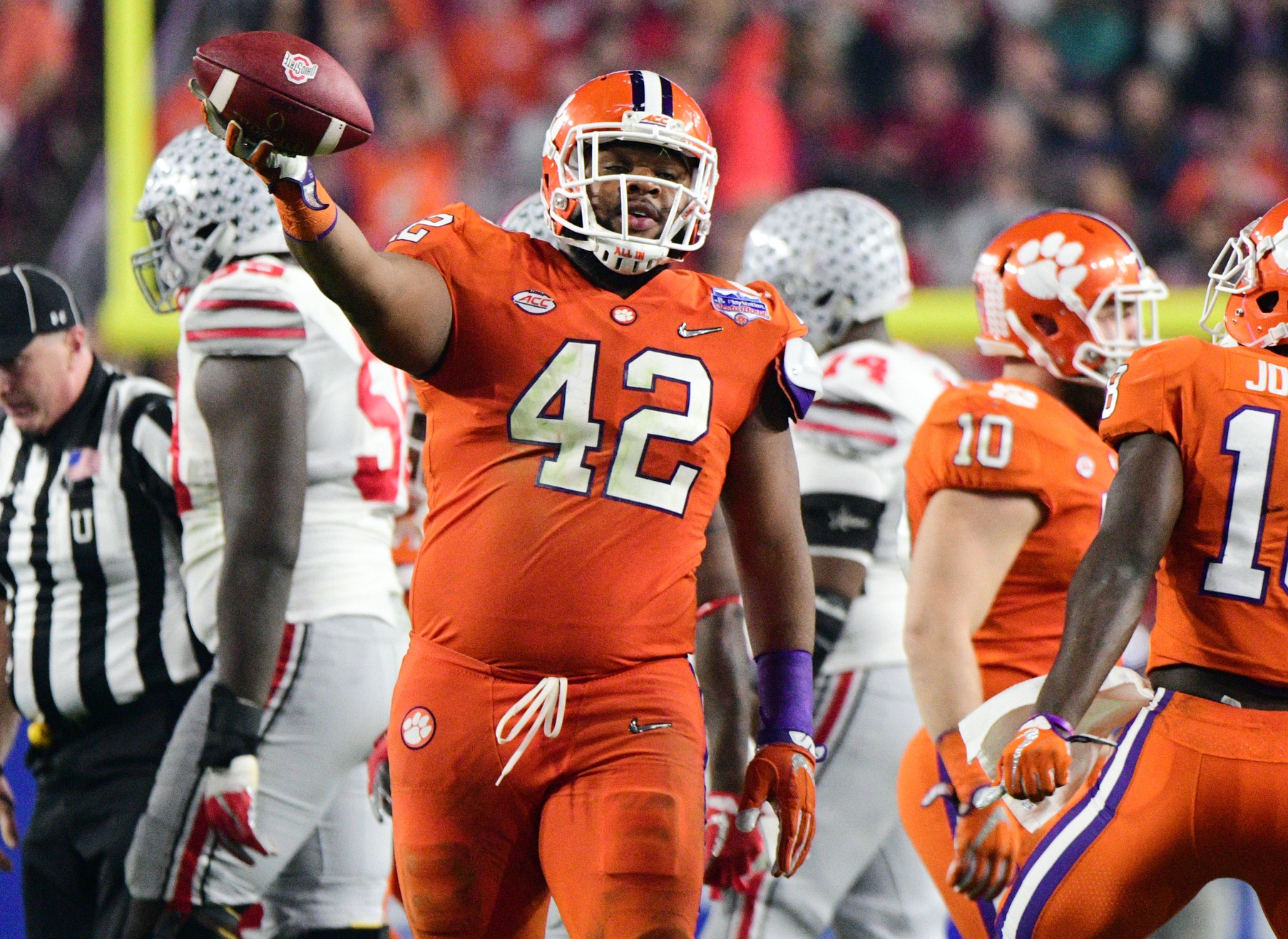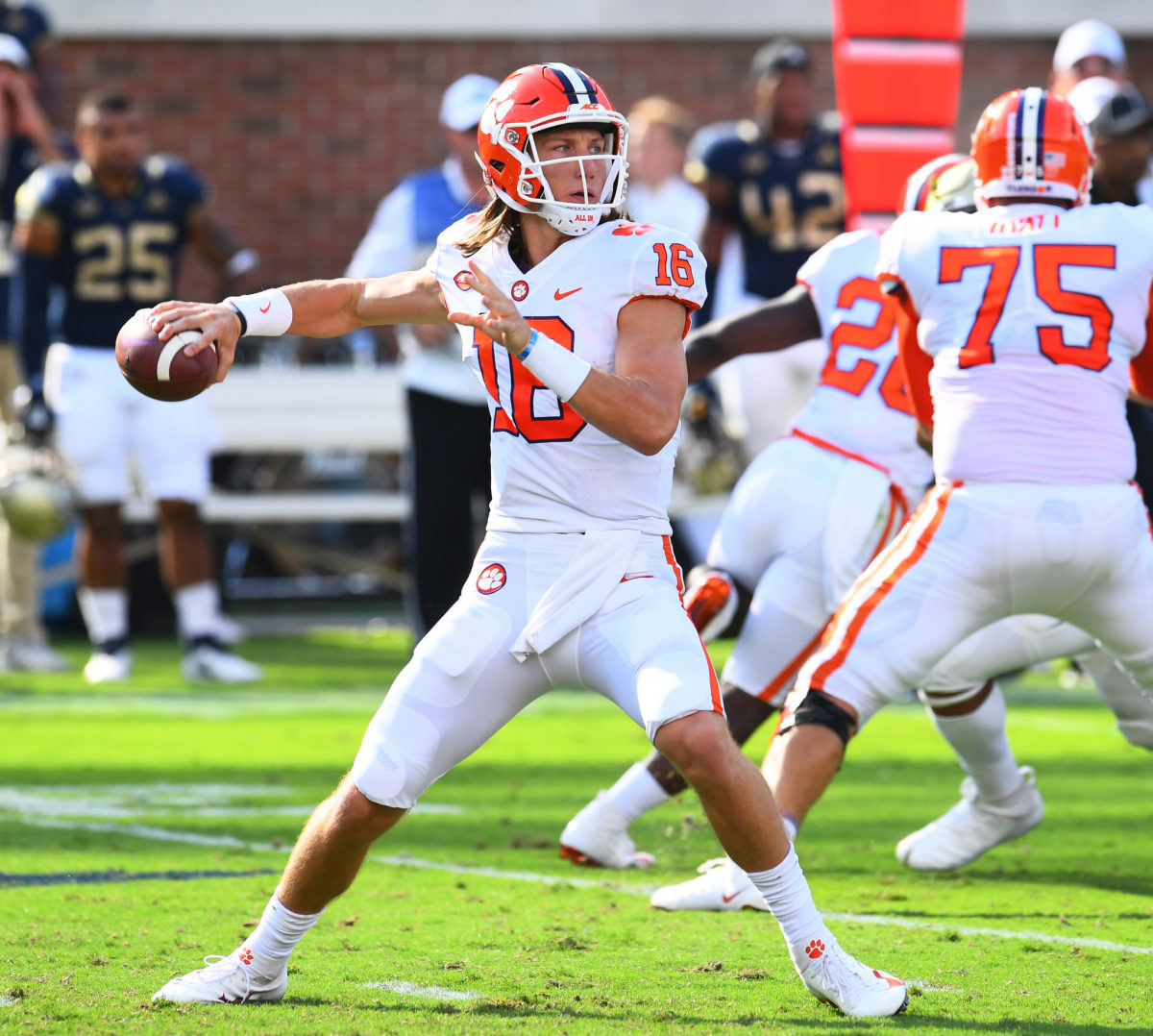Player Conduct and Ejection Reasons

Clemson player ejected – The NCAA has established a set of rules and regulations governing player conduct in college football to ensure a safe and fair playing environment. These rules prohibit unsportsmanlike behavior, such as excessive celebration, taunting, and physical altercations. Players who violate these rules may be subject to penalties, including ejection from the game.
The Clemson player’s ejection sparked a somber reflection on the recent loss of basketball legend Bill Russell, whose indomitable spirit and tireless advocacy for social justice left an enduring legacy. His passing cast a shadow over the game, reminding us of the fragility of life and the profound impact that true greatness can have.
Yet, as the game resumed, the Clemson players found solace in channeling Russell’s competitive fire, honoring his memory with every play.
At Clemson University, players are expected to adhere to the highest standards of conduct both on and off the field. The athletic department has a zero-tolerance policy for unsportsmanlike behavior, and players who are ejected from a game may face additional disciplinary action, including suspension from the team.
In the midst of the commotion surrounding the Clemson player’s ejection, the echoes of Walt Frazier ‘s commentary resonated in the stadium. His astute observations and captivating anecdotes momentarily transported us to the hallowed courts where legends like him once graced the game.
But as the game resumed, the focus shifted back to the field, where the intensity of the competition once again took center stage.
Reasons for Ejection
There are several reasons why a player might be ejected from a game at Clemson University. These include:
- Fighting
- Unsportsmanlike conduct
- Targeting
- Illegal use of hands or feet
- Excessive celebration
- Taunting
In addition to these specific violations, players may also be ejected from a game for any other conduct that the referee deems to be unsportsmanlike or dangerous.
The crimson-clad Clemson player’s dismissal stirred a ripple of disbelief, echoing the infamous ejection of Bob Cousy in 1955. Both incidents, separated by decades, shared a common thread: the intensity of competition that sometimes overshadows sportsmanship. As the Clemson player exited the field, the legacy of Cousy, the Boston Celtics legend, served as a poignant reminder of the delicate balance between passion and propriety on the court.
Consequences of Ejection
The consequences of an ejection for both the player and the team can be significant. The player who is ejected will miss the remainder of the game and may face additional disciplinary action, such as suspension from the team. The team may also be penalized for the player’s ejection, such as loss of yardage or a penalty kick.
Ejections can also have a negative impact on team morale and momentum. When a key player is ejected from a game, it can be difficult for the team to recover and win. As a result, players and coaches should be aware of the rules governing player conduct and do everything they can to avoid unsportsmanlike behavior.
Notable Ejections at Clemson University: Clemson Player Ejected

Clemson University has a rich football history, but it has also been marred by several notable player ejections. These incidents have had a significant impact on the team’s performance and reputation, and they have also served as valuable lessons for players and coaches alike.
DeAndre Hopkins (2013), Clemson player ejected
DeAndre Hopkins was one of the most talented wide receivers in Clemson history. However, he was also ejected from the 2013 Orange Bowl for fighting with an opposing player. This incident cost Clemson a key player in a big game, and it also tarnished the team’s reputation.
Mackensie Alexander (2015)
Mackensie Alexander was a talented cornerback who was ejected from the 2015 National Championship Game for targeting. This incident was controversial, as many felt that the targeting call was not justified. However, it cost Clemson a key player in a big game, and it also raised questions about the NCAA’s targeting rule.
Isaiah Simmons (2019)
Isaiah Simmons was a versatile defensive player who was ejected from the 2019 National Championship Game for targeting. This incident was also controversial, as many felt that the targeting call was not justified. However, it cost Clemson a key player in a big game, and it also raised questions about the NCAA’s targeting rule.
The ejections of DeAndre Hopkins, Mackensie Alexander, and Isaiah Simmons are just a few of the most notable incidents in Clemson history. These incidents have had a significant impact on the team’s performance and reputation, and they have also served as valuable lessons for players and coaches alike.
Prevention and Mitigation Strategies

Clemson University recognizes the importance of preventing player ejections and maintaining a positive and sportsmanlike environment during athletic competitions. To this end, the university has implemented a range of measures aimed at reducing the frequency and severity of player ejections.
One key strategy employed by Clemson is the establishment of clear and comprehensive rules and regulations governing player conduct. These rules are communicated to players, coaches, and staff members through various channels, including team meetings, online resources, and written materials. The rules Artikel prohibited behaviors, such as excessive physical contact, unsportsmanlike conduct, and verbal abuse, and specify the consequences for violating these rules.
Education and Training
In addition to establishing clear rules, Clemson University also places a strong emphasis on education and training to prevent player ejections. Players receive regular instruction on the importance of sportsmanship, fair play, and ethical behavior. They are also taught techniques for managing their emotions, resolving conflicts peacefully, and respecting opponents and officials.
Player Support and Counseling
Clemson University recognizes that players may face a range of challenges that can contribute to their risk of being ejected from games. To address these challenges, the university provides a comprehensive support system for players, including access to counseling services, academic support, and mentoring programs. These services help players to develop coping mechanisms, improve their mental health, and overcome personal obstacles that may otherwise lead to unsportsmanlike conduct.
Officiating Standards and Training
Clemson University also works closely with officials to ensure that they are well-trained and consistent in their enforcement of the rules. Officials receive regular training on the latest rules and regulations, as well as best practices for managing player conduct. The university also provides feedback to officials on their performance and encourages them to adopt a fair and impartial approach to officiating.
Evaluation and Improvement
Clemson University regularly evaluates the effectiveness of its player conduct prevention and mitigation strategies. This evaluation includes reviewing data on player ejections, conducting surveys of players and coaches, and seeking feedback from external stakeholders. Based on the results of this evaluation, the university makes adjustments to its strategies as needed to improve their effectiveness.
The Clemson player’s ejection stirred a ripple of confusion, its echoes resonating in the stadium. As the crowd hummed with questions, the air seemed to whisper a poignant query: When did Jerry West die ? The link between the two events remained enigmatic, suspended in the moment like a haunting melody.
Yet, as the game resumed, the ejected player’s absence cast a subtle shadow over the field, leaving behind a lingering sense of unanswered questions.
Amidst the chaos of the Clemson game, where a player’s ejection sparked controversy, the sports world mourned the loss of a legend. Bill Russell’s death cast a somber shadow over the day, reminding us of the profound impact that sports icons can have both on and off the field.
Yet, even in the face of such a loss, the game must go on, and the Clemson players returned to the field, determined to honor the legacy of those who came before them.